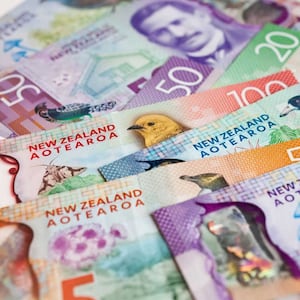Business
Winston Peters Proposes Compulsory KiwiSaver to Boost Savings

Winston Peters, leader of the New Zealand First party, has announced a significant proposal aimed at enhancing the country’s economic resilience through compulsory savings. His plan includes making KiwiSaver mandatory, implementing tax cuts for employers, and increasing contribution rates to 10% of wages. This initiative seeks to address New Zealand’s low savings rate, which poses a fiscal challenge and underscores the necessity for a robust savings system.
The announcement follows a growing recognition of the need for New Zealand to bolster its domestic savings. Currently, the country relies heavily on foreign investment for economic growth, which can expose it to external vulnerabilities. By raising the stakes in the savings conversation, Peters aims to shift New Zealand’s economic focus toward nurturing a strong asset-owning populace.
Challenges and Opportunities in Domestic Savings
Peters argues that a high domestic savings rate is crucial for ensuring financial stability. He contends that New Zealand should not depend solely on foreign direct investment but should instead cultivate a strong base of domestic capital. This approach, he believes, will not only enhance economic stability but also reduce the risks associated with external economic shocks.
The proposal is politically significant, positioning savings reform at the forefront of New Zealand’s economic policy discussions. Peters stated that the nation must aspire to be a wealthy, asset-owning society, emphasizing the importance of collective financial responsibility. By making KiwiSaver compulsory, the initiative aims to encourage individuals to save more effectively for their futures.
The Political and Economic Implications
The implications of Peters’ proposal are multifaceted. From a political standpoint, the move could resonate with voters who prioritize economic stability and future security. If implemented, Peters’ plan could potentially reshape the landscape of New Zealand’s financial future. The tax cuts for employers are designed to incentivize businesses to participate actively in this savings initiative, fostering a culture of saving across the workforce.
While the proposal has been met with some enthusiasm, it also raises questions about its feasibility and potential resistance from various stakeholders. Critics might argue that mandatory contributions could pose challenges for some workers, particularly those already struggling with living costs. Balancing the need for increased savings with the realities of everyday financial pressures will be crucial as this proposal moves forward.
In conclusion, Winston Peters’ ambitious plan to make KiwiSaver compulsory represents a pivotal moment in New Zealand’s economic dialogue. By focusing on boosting domestic savings and reducing reliance on foreign investments, the initiative seeks to foster a more resilient economy. As the nation grapples with fiscal challenges, the success of this proposal will depend on its acceptance by the public and its implementation by policymakers.
-

 Sports2 months ago
Sports2 months agoNetball New Zealand Stands Down Dame Noeline Taurua for Series
-

 Entertainment2 months ago
Entertainment2 months agoTributes Pour In for Lachlan Rofe, Reality Star, Dead at 47
-

 Entertainment3 weeks ago
Entertainment3 weeks agoNew ‘Maverick’ Chaser Joins Beat the Chasers Season Finale
-

 Sports2 months ago
Sports2 months agoSilver Ferns Legend Laura Langman Criticizes Team’s Attitude
-

 Sports1 day ago
Sports1 day agoEli Katoa Rushed to Hospital After Sideline Incident During Match
-

 Politics1 month ago
Politics1 month agoNetball NZ Calls for Respect Amid Dame Taurua’s Standoff
-

 Entertainment2 months ago
Entertainment2 months agoKhloe Kardashian Embraces Innovative Stem Cell Therapy in Mexico
-

 World3 months ago
World3 months agoPolice Arrest Multiple Individuals During Funeral for Zain Taikato-Fox
-

 Sports3 months ago
Sports3 months agoGaël Monfils Set to Defend ASB Classic Title in January 2026
-

 Entertainment1 month ago
Entertainment1 month agoTyson Fury’s Daughter Venezuela Gets Engaged at Birthday Bash
-

 Sports1 month ago
Sports1 month agoHeather McMahan Steps Down as Ryder Cup Host After Controversy
-

 World2 weeks ago
World2 weeks agoSevere Winds Hit New Zealand, Over 100 Flights Canceled















